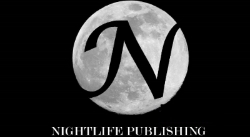Humans are predisposed to
creating "Us vs. Them" dynamics. We divide ourselves according to
race, religion, nationality, ideology and dozens of other factors. None of these
contrasts matter in the end because we all share a fundamental humanity, except
when it comes to writing fiction. That is completely different (insert sarcasm
here).
The Two Travelers
I have found two great paradigms
in the craft of writing. Each has its strengths and weaknesses. On one
side we have the pantser who writes "from the seat of their pants".
They begin with an idea and a blank screen. Then they start writing. Their idea
and their inspiration lead the way and to a larger extent, the writer follows.
There are several well-known proponents of this method. Stephen
King and Tom Clancy write in this style and quite a few independent writers
I know also support it.
On the other hand, the plotter starts with an idea, but then builds
some kind of road map as a guide before writing the manuscript. Some writers call it a plot. Others call it an outline or a
script. Robert
McKee explored this method in depth in his book Story and I have found that
motion picture and graphic novel writers are much more comfortable with the
plot method.
In short, a panster is
like an archaeologist who "finds" their story as they write it, never
completely sure of what they will pull from their subconscious until it’s done.
They are like the traveler who takes a trip with the expressed goal of getting
"lost" and reveling in the adventure of what they discover.
By contrast, a plotter
is closer to an architect who "builds" their story out of models and
plans, unwilling to begin construction until they know what the structure will
look like. They are the traveler who takes a trip with a map, a GPS, a
guidebook and an itinerary of some kind.
I'm not trying to
advocate one method over another, because
every writer has to find the method and the practice that works with their temperament
and lifestyle. I can explain why I plot and how it helps me, in the hopes that
this can help you understand your own method better.
The Method to My Madness
All my professional writing
has included some kind of plotting. Creating contracts as a lawyer,
understanding the development of comics or the production of films all required
outlines of various sorts. Now that I publish independently, plotting enhances my
structure and my timing.
When I write from a plot I can work from the inside out. I understand how each character relates to the others and how
the narrative will flow. I can build each beat within a chapter, each chapter
within an act and each act within a story. A script might take three months to
a year to write, but when I'm finally ready to write the book the writing goes
very fast.
In my wild youth, I
tried to write a novel by the seat of my pants. It took me ten years to finish
and it was such a hot mess at the end that I tossed the entire thing. By
contrast, the plot for my upcoming novel A
Taste of Honey took nine months to write. The first draft of the novel
itself only took seven months.
My plots save me time in
the long run because I avoid writing myself into a place I can't get out of. If the story doesn't work on the plot or pitch level, it can be
reworked or abandoned without much time lost. I'd hate to start something and
then have to revamp the whole idea after a year or two of writing. It would be
worse to write most or all of a story before figuring out that it needs to be
chucked. I've got a lot of plots floating around that I can play with at my
leisure. When one ripens, I know it’s a project I can actually finish.
The Map Is Not the
Journey
Some might think that
writing a plot before writing a novel is less organic and more formulaic. That
might be true for some writers, but only if they are too rigid with the plot.
As I write, it is normal for my characters and situations to deviate from the
original script. I don't see that as a problem. It's a natural part of the
journey. Just because you have a map doesn't mean you can't take a
detour. The plot is still helpful when this happens, because it will
show me where I can regain the narrative thread and where previous material
needs to be changed to conform to the logic of this new direction.
Creating a plot is
writing by the seat of your pants in an efficient, low risk way. I can play
with ideas and see where they take me without trying to manage setting, dialogue,
grammar, description and sentence flow at the same time. It's like taking a
trip and getting lost in a plane rather than on foot.
Being a plotter instead
of a panster is not a superior writing method or a guarantee
for success. No matter how you write the first draft, a manuscript still
needs multiple rounds of editing and polish. But creating a plot can be helpful
if it suits you. I don't think I would write any other way.
So how do you write your
novels? Please leave a comment and let me know.
Have fun.
Gamal

